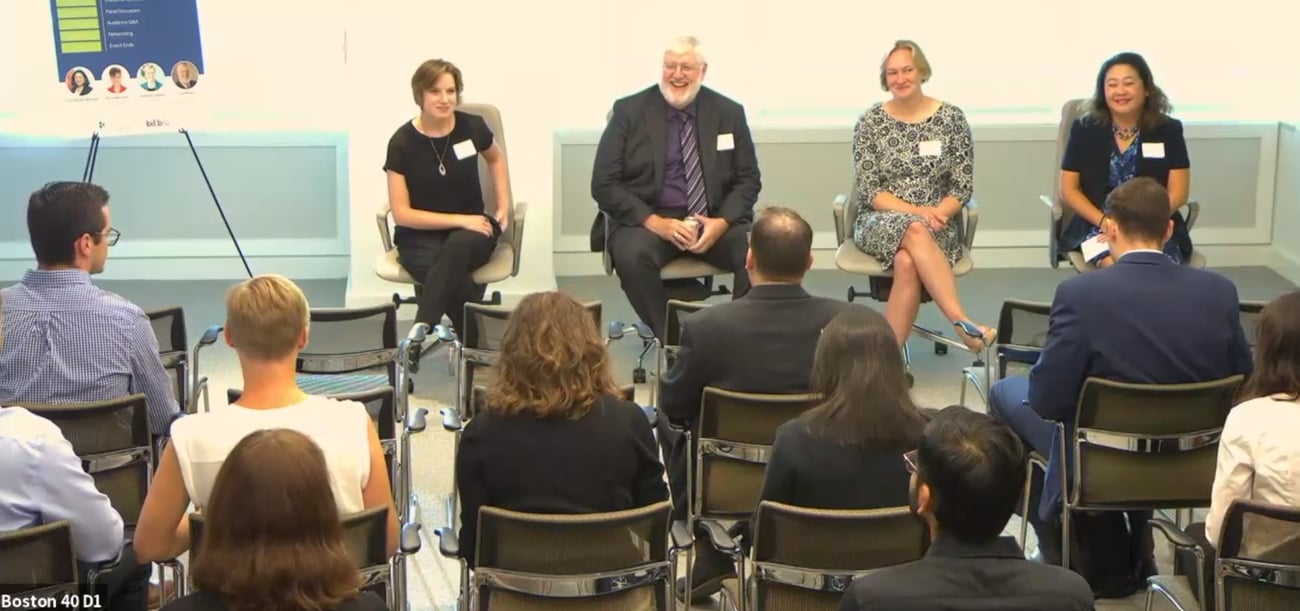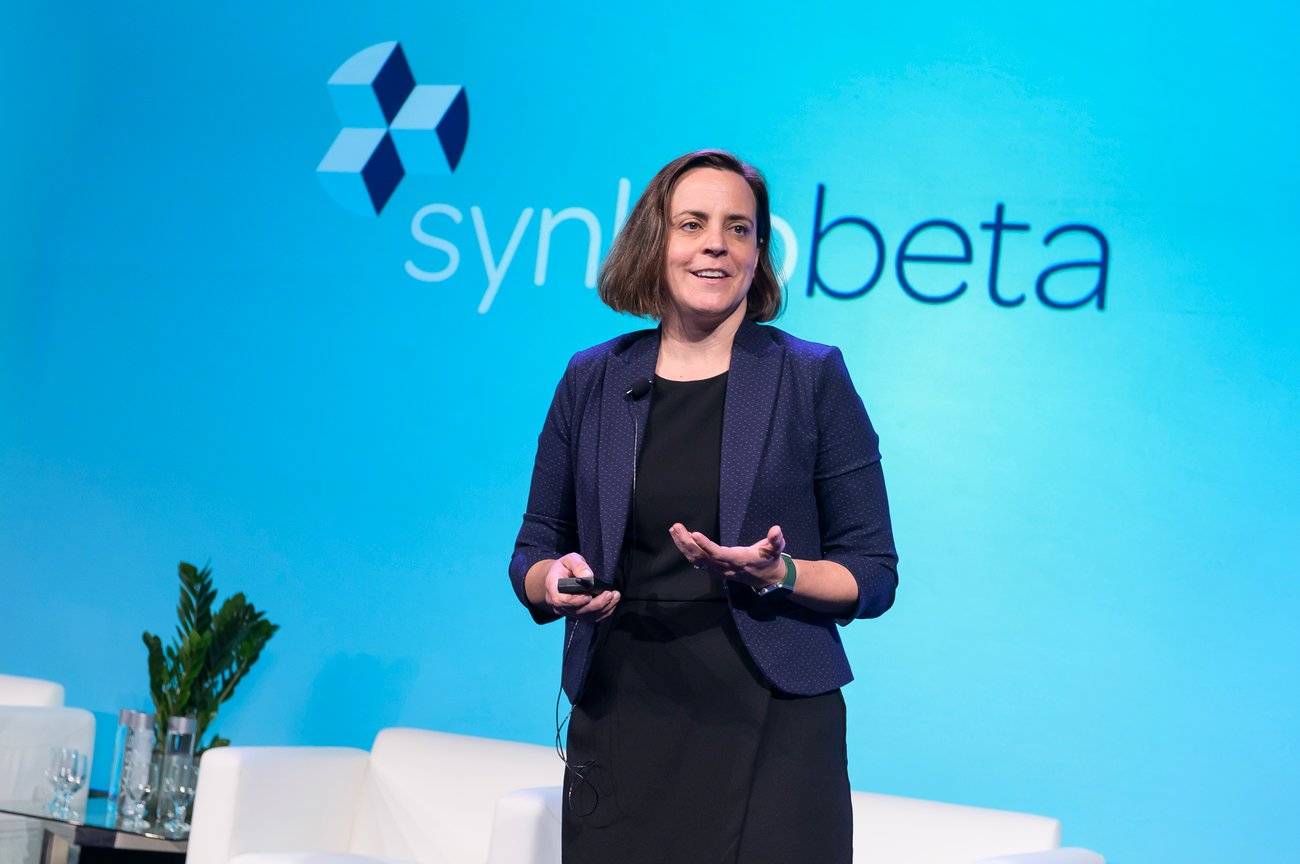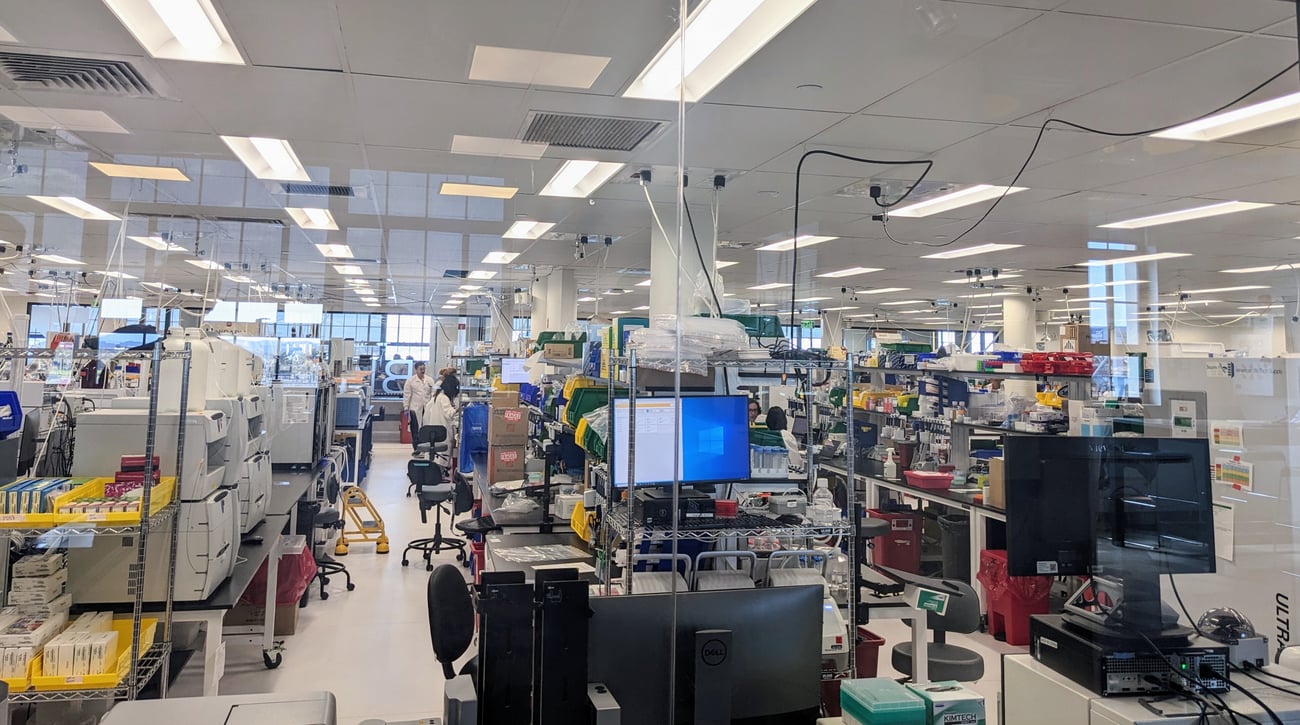 |
|
|
 |
|
Hi ,
Welcome back to this month’s edition of our human health newsletter. It’s been a busy month, but I wanted to share some regulatory insights that emerged from our exclusive event that ran parallel with Biotech Week Boston. There has been so much amazing industry news in the last few weeks it was difficult to list it all, but we have highlighted some of the really key stories below. Also, I got to take a tour of the Ginkgo Bioworks Boston location, and it was amazing!
Also in this newsletter:
|
|
Regulatory and Manufacturing Insights for SynBio Therapeutics |
 |
|
Last week, SynBioBeta hosted our Boston leaders' breakfast with bit.bio to discuss the regulatory challenges of synbio-derived therapeutics. We heard key insights and experiences from regulatory, manufacturing, and IP experts. These are complex topics with many moving parts, and we asked our panelists to dig into the nuts and bolts of the regulatory system. Here are our biggest takeaways:
The US FDA is a massive, complex federal agency; many avenues exist for a novel drug or device to be assessed or regulated. So when the FDA receives an application, how do they view what they receive? As a drug maker, what path will you be sent down? The answer, it turns out, is not so simple. Jeffrey Baker, former Deputy Director of Biotechnology Products at the FDA, gives a real-life example of a therapeutic prepared with egg whites derived from a transgenic chicken. “There were a lot of meetings between USDA, the Center for Veterinary Medicine, the Center for Biologics, and the Center for Drugs about oversight. It was very collegial, not “turfy" at all,” says Baker. Naturally, there were several chicken and egg jokes throughout the process, which got a bit stale by the forty-fifth retelling. “But really, what we were talking about was what was the starting material, which was a big deal,” Baker emphasizes.
Read our complete insights here, and check out the video here!
|
|
ARPA-H Announces Nationwide Health Innovation Network |
 |
|
Renee Wegrzyn, director of the Advanced Research Projects Agency for Health (ARPA-H).
ARPA-H (the Advanced Research Projects Agency - Health) has announced a new network, ARPANET-H. The nationwide health network will be anchored in three regional hubs, including Boston and Dallas. Using a hub-and-spoke approach, ARPANET-H aims to rapidly advance innovation and bring more equitable access to patients across the US. The network also focuses on several disease areas specified in President Biden’s Unity Agenda, including the detection, prevention, and treatment of cancer, Alzheimer’s, diabetes, and many others.
|
|
Checking out Ginkgo’s Biofoundry |
 |
|
While I was in Boston, I took the opportunity to visit Ginkgo’s Biofoundry. After arriving in a pedi-cap tricked out in Ginkgo swag (shout out to the Living Ink printed t-shirts!), I got my first tour of Ginkgo’s massive biofoundry. It’s hard not to be impressed; the team has more automation equipment than my wildest dreams, and this is only one of their facilities. Very inspired by the future of synbio! |
|
News from the Community |
-
Machine Learning Enhances Antibody Discovery: A Glimpse into LabGenius and Sanofi's Collaborative Endeavour - LabGenius, a forerunner in harnessing machine learning for antibody discovery, showcased compelling data from their innovative antibody discovery platform. The results were reported to complement Sanofi’s Large Molecule Research strategy aimed at infusing all aspects of biologics discovery and development with the latest tools in computation and AI.
-
Scala Biodesign Secures Seed Funding to Improve Protein Engineering and Development - By fusing knowledge from the diverse worlds of modeling and biological data analysis, Israeli startup Scala promises a faster, cheaper avenue to transform the protein design process completely.
-
A CAR-T Cell Side Project Takes Center Stage Offering Hope Beyond Cancer - New research demonstrates that encoding CAR-T-cells with instructions to activate a hyperactive form of protein STAT5 can promote cell engraftment without requiring lymphodepletion, a critical step in making CAR-T therapy safer and more effective.
-
DNA Biosensor Finds Novel Material for Early Diagnosis of HPV-Related Cancers - A novel material has the potential to rewrite the annals of optoelectronics, the fabrication of batteries, supercapacitors, and even platforms detecting the subtle hints of biomolecules and chemicals. Recent research has leveraged this material to detect faint traces of HPV.
-
Turbocharging RNA Vaccines for a Needle-Free Future - A team at MIT is looking to conquer the challenge of creating a robust intranasal vaccine. The potential? To spawn an immune response right where it's needed most—in the mucosal tissues of our nose and lungs.
-
Artificial Kidneys Prove Promising in Pig Patients - Groundbreaking research showcases the successful survival of kidney cells within an implantable device known as a bioreactor within a pig's body while emulating critical kidney functions. The device functions unobtrusively, akin to a pacemaker, without inciting the recipient's immune system into defensive mode.
|
|
Other News |
|
|
|
|
|
|
|
|
Have news or comments you’d like to share? Reach out to us at humanhealth@synbiobeta.com
That’s all from us this month, but we’ll be back next month with new insights, opinions, and spotlights on the breakthroughs of synbio for human health.
Until next time,
Fiona
Fiona Mischel
Director, Human Health Content and Innovation
|
|
|
|
|
|
|